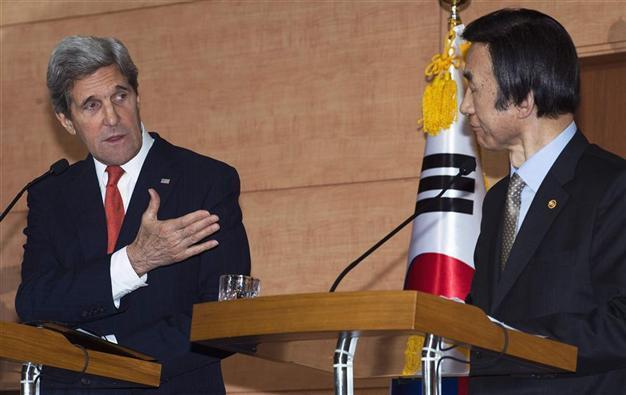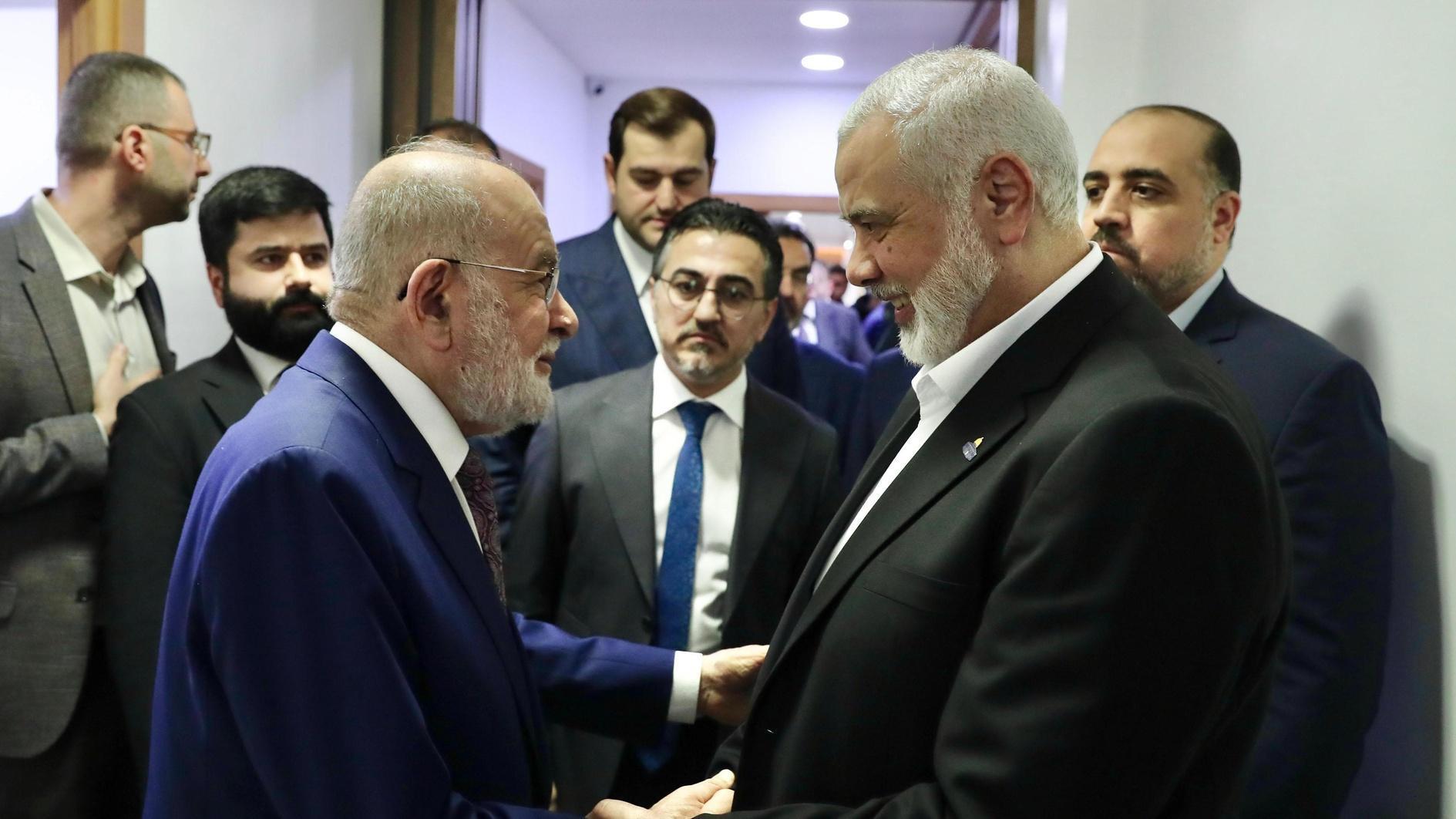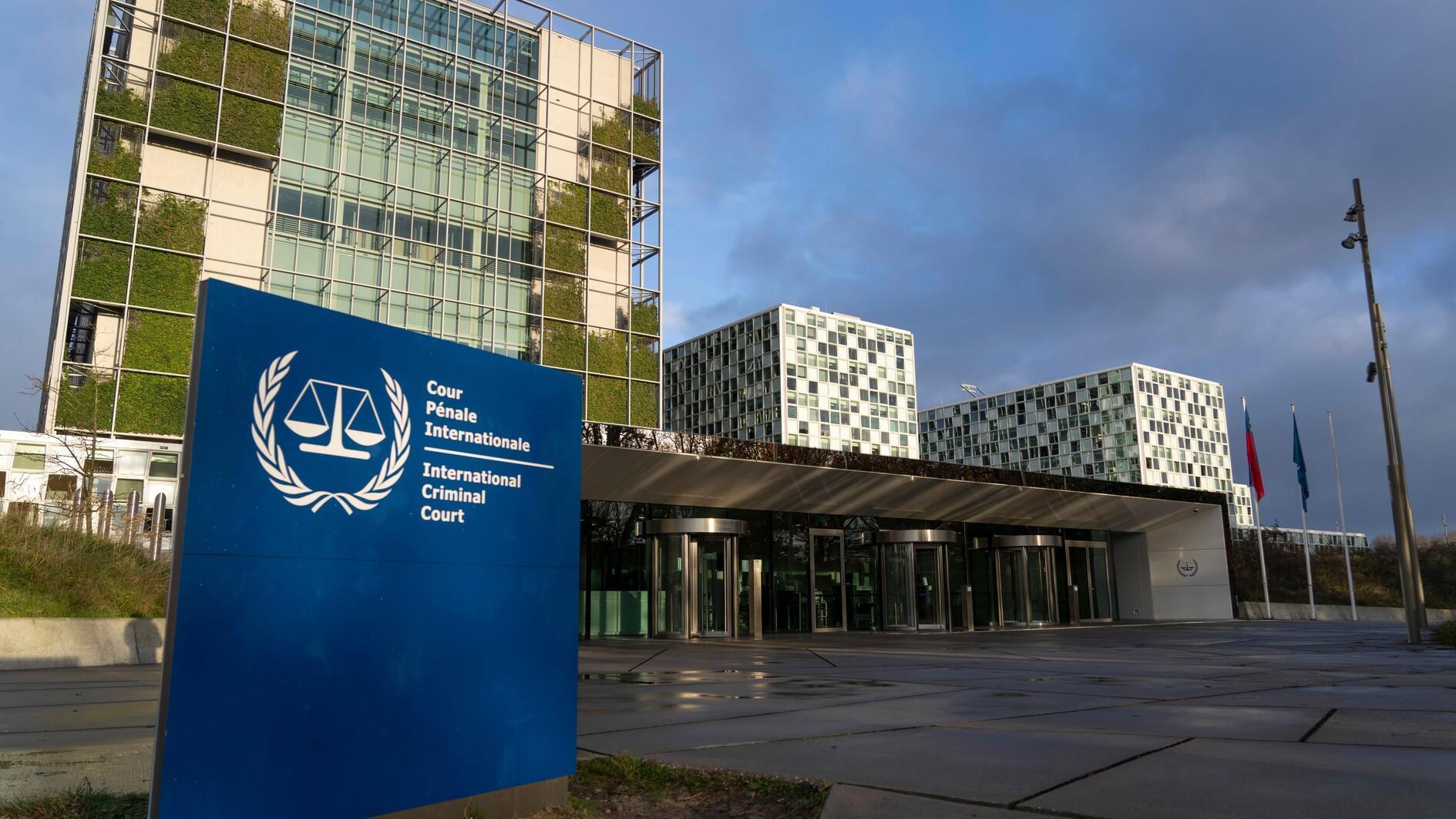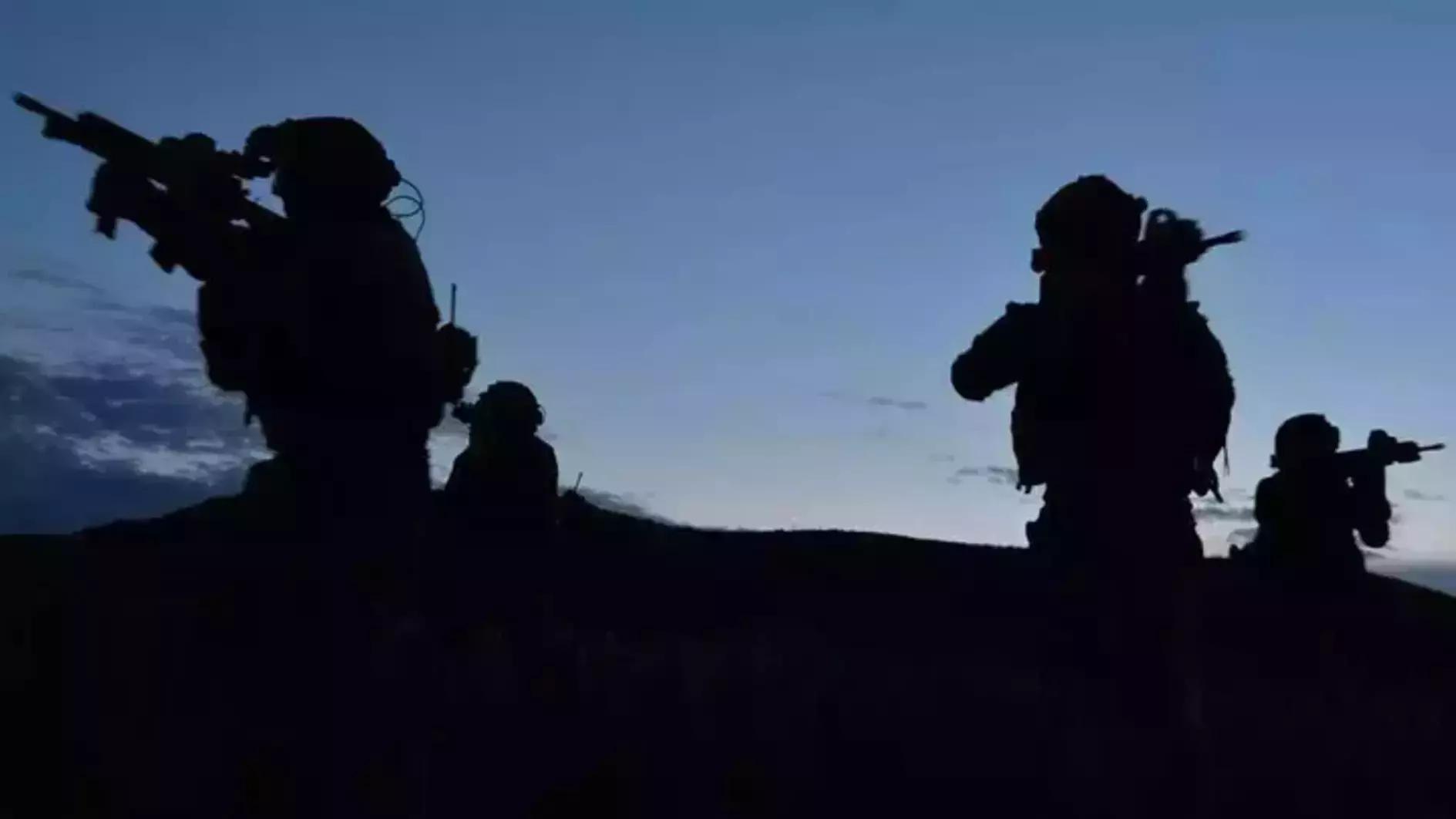Kerry slams North Korea rhetoric, backs North-South dialogue
SEOUL - Agence France-Presse

U.S. Secretary of State John Kerry (L) gestures next to South Korea's Foreign Minister Yun Byung-se during a joint news conference at the Foreign Ministry in Seoul April 12, 2013. REUTERS/Paul J. Richards/Pool
World powers increased pressure on North Korea on April 12 to abandon its bellicose rhetoric and an expected missile launch as Pyongyang turned its nuclear threats on Japan amid a chilling new evaluation of its offensive capability.U.S. Secretary of State John Kerry, visiting Seoul to give complete U.S. backing to military ally South Korea, joined President Barack Obama in decrying North Korea’s incendiary rhetoric – and urged China to step in. “The rhetoric that we are hearing from North Korea is simply unacceptable by any standards,” Kerry told a news conference in Seoul on April 12 alongside South Korean Foreign Minister Yun Byung-se.
‘No nuclear N Korea’
Any missile launch would be a “huge mistake,” he said, adding that the U.S. and the rest of the international community would never accept North Korea as a nuclear state. “We’re prepared to work with conviction that relations between North and South can improve and they can improve very quickly,” Kerry said.
“I think we have lowered our rhetoric significantly and we are attempting to find a way for reasonableness to prevail here,” he added. South Korean President Park Geun-hye has made a series of statements in recent days hinting at dialogue with Pyongyang. Yonhap news agency quoted her as telling ruling party officials on April 12 that the South should meet with the North and “listen to what North Korea thinks.”
Kerry also said it was high time for China, whose trade and aid have propped up North Korea since the end of the Cold War, to intervene with its wayward ally if it truly wants to safeguard regional stability. “China has an enormous capability to make a difference here,” he said.
Offer from Lavrov
Russian Foreign Minister Sergei Lavrov, for his part, said on the same day his nation would welcome a fresh round of talks on Swiss soil over North Korea’s nuclear program if all the parties were to agree. Flanked by his Swiss counterpart at a news conference, Lavrov made a show of support for renewed talks in Geneva if Pyongyang were to agree to hold discussions with Russia, Japan, South Korea, the United States and China. But they both made clear there was no such general agreement.
The air of crisis that has engulfed the region for weeks, since North Korea staged a rocket launch and atomic test, was given even greater menace from a U.S. intelligence report that said it may now have a nuclear warhead in its arsenal.
U.S. and South Korean military officials downplayed the assessment by the Defense Intelligence Agency (DIA), but Pyongyang warned of the direct results if Japan executes its threat to shoot down any North Korean missile. The North’s Korean Central News Agency (KCNA) said such a “provocative” action would end with its instigators “consumed in nuclear flames.”
“Japan is always in the cross-hairs of our revolutionary army and if Japan makes a slightest move, the spark of war will touch Japan first,” KCNA said in a commentary. Japan positioned Patriot anti-missile batteries around Tokyo this week to protect the 30 million people who live in the vast conurbation.
















